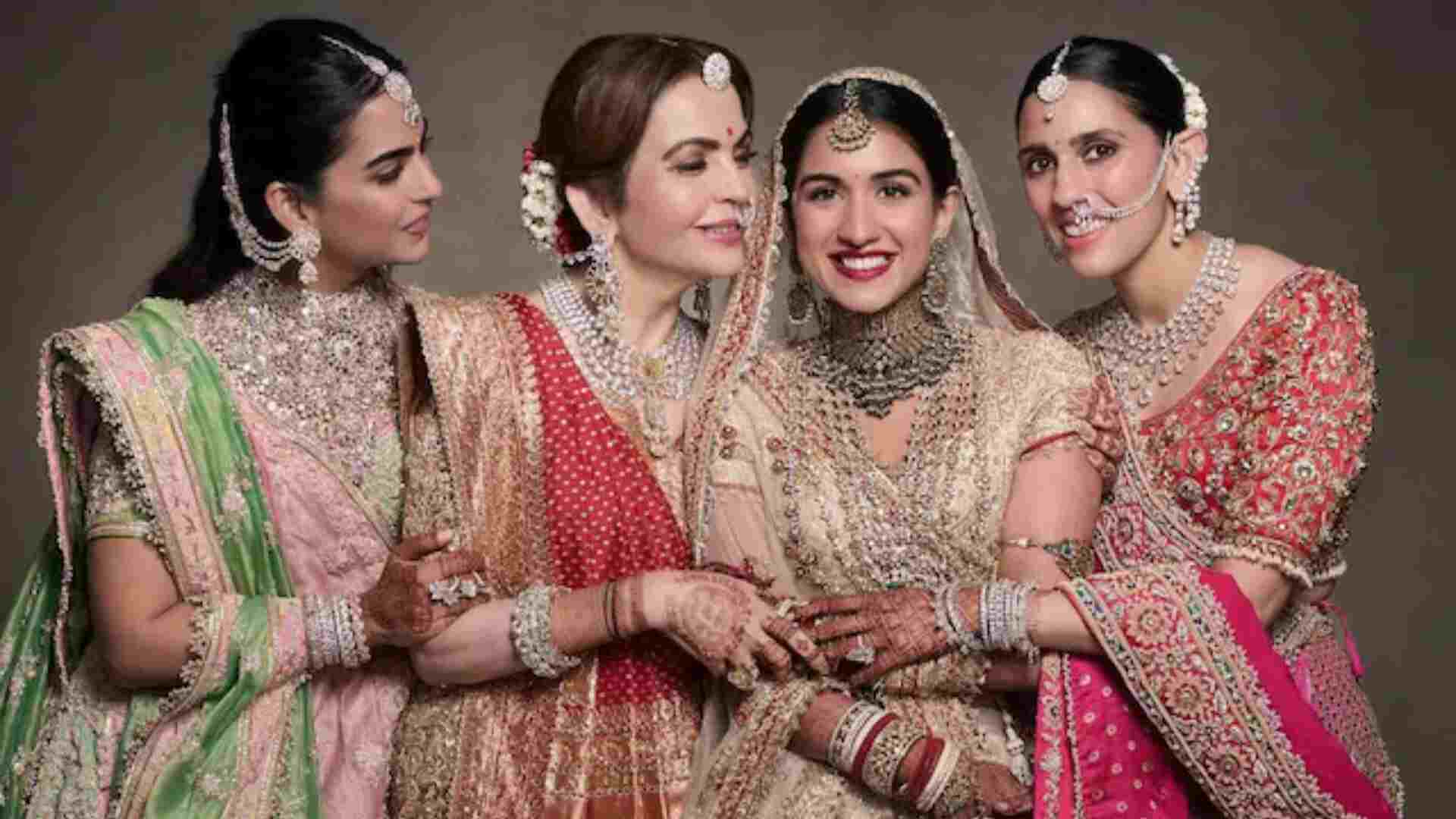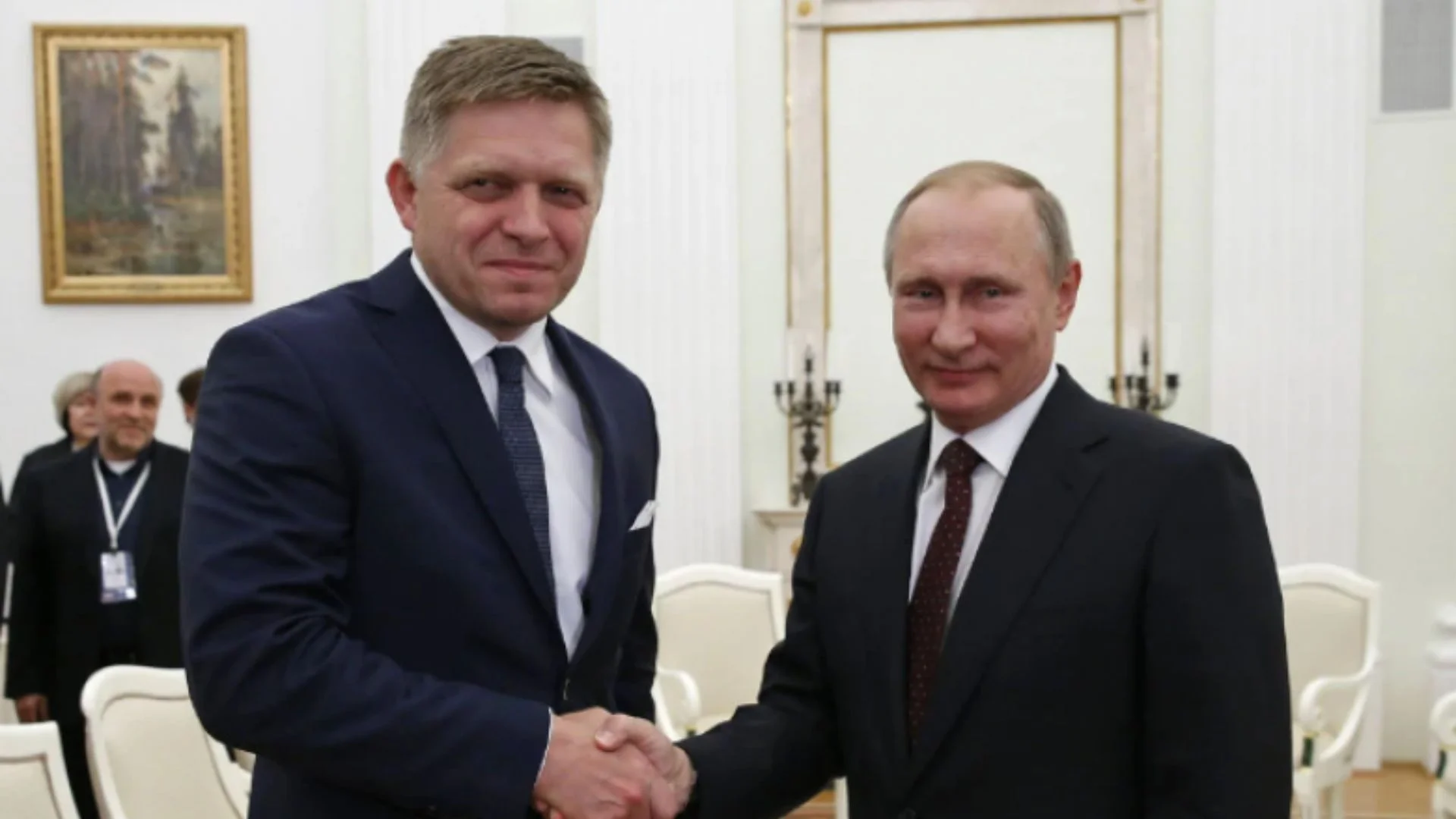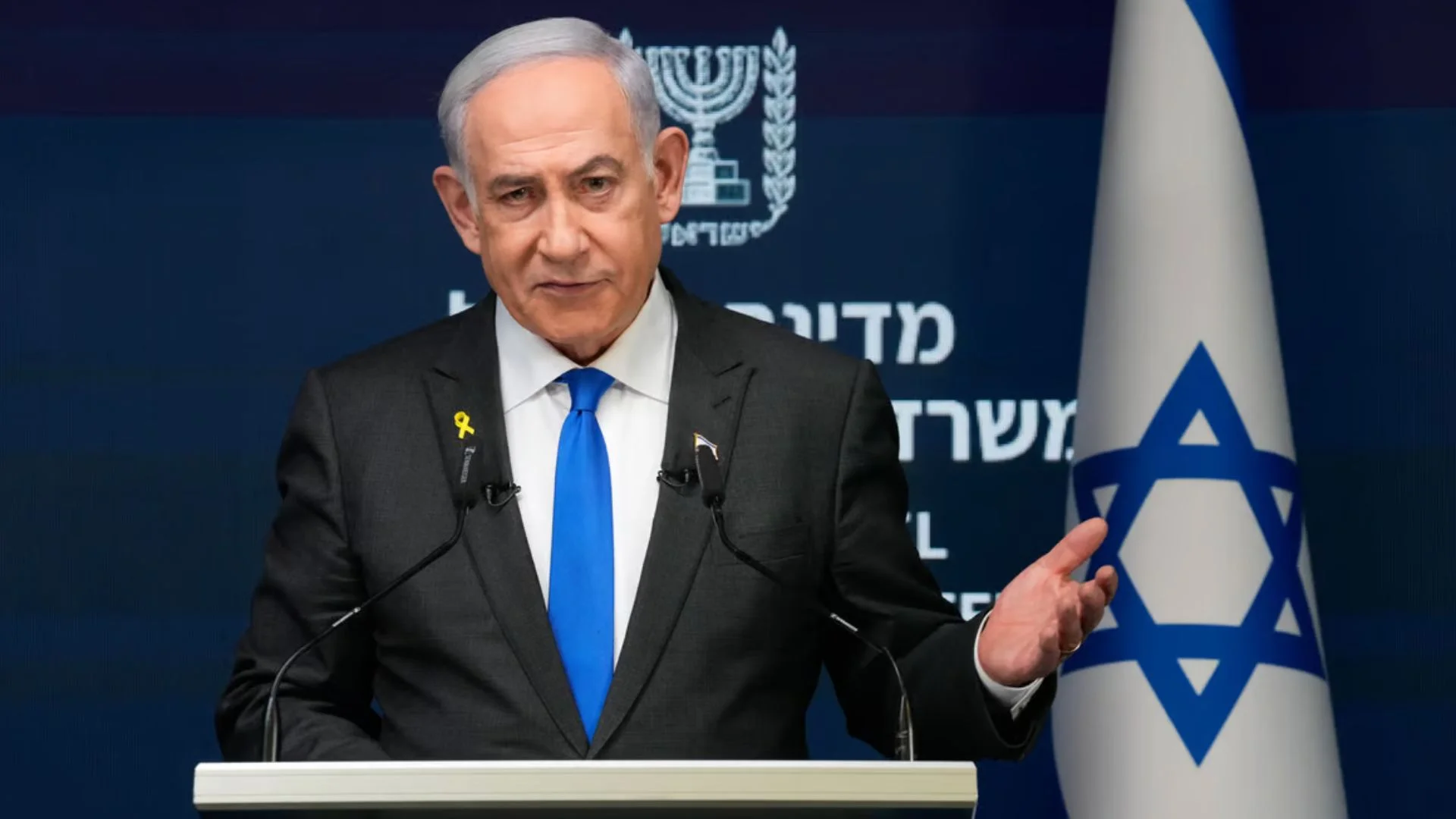Panetar is the traditional bridal outfit for Gujarati women, featuring a red and white saree or lehenga-choli that symbolizes purity and love. Gifted by the bride’s maternal uncle, it is worn for initial wedding rituals, before transitioning to the Gharchola saree, marking her passage into married life.
The Cultural Significance of the Panetar
– The Panetar is the traditional bridal outfit worn by Gujarati women on their wedding day. It includes a red and white saree or lehenga-choli ensemble.
– The colors of the Panetar – red and white – symbolize purity and love in Gujarati culture. The outfit is gifted to the bride by her maternal uncle or ‘mama’.
– Traditionally, the bride wears the Panetar for the initial wedding rituals, before changing into the Gharchola saree later in the ceremony. This transition represents the bride’s passage from maiden to married woman.
– The Panetar has deep cultural roots in Gujarat, with variations in design and embellishments across different Gujarati communities and regions. It is considered an integral part of Gujarati wedding attire.
The Ambani Weddings and the Panetar
By incorporating the Panetar into their wedding ensembles, the Ambani women highlighted the cultural significance of this Gujarati tradition, even as they adapted it to modern fashion trends.
Nita Ambani’s Panetar and Gharchola Ensemble
- For her own wedding to Mukesh Ambani in 1985, Nita Ambani wore a traditional Gujarati bridal outfit that combined two sarees – the ‘panetar’ and the ‘gharchola’.
- The panetar was a white/ivory silk saree with a traditional red/maroon border, gifted by Nita’s family. The gharchola was a fully red and gold saree, gifted by the groom’s family.
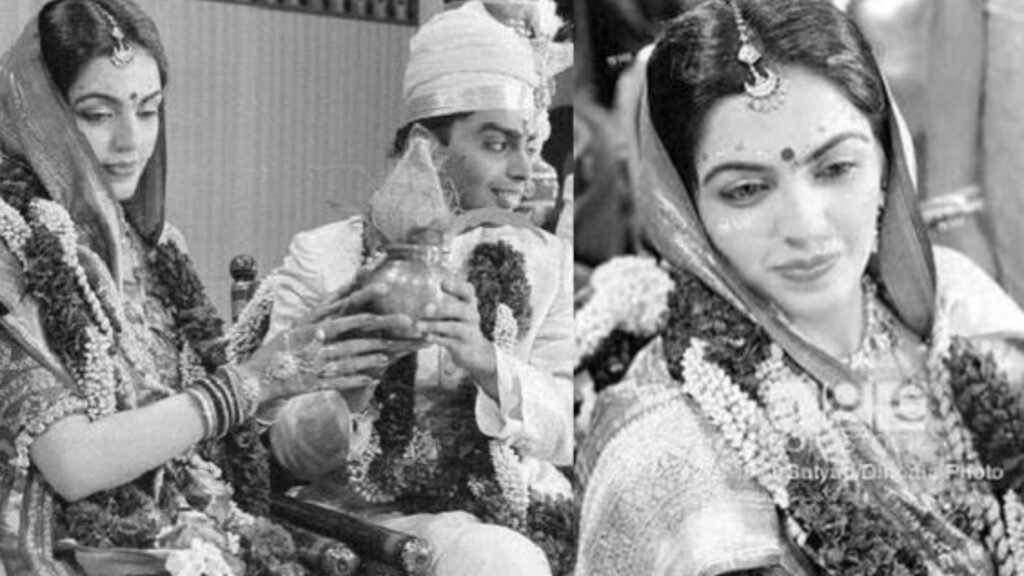
Nita Ambani on Her Wedding Day
Isha’s Custom Abu Jani Sandeep Khosla Lehenga
- For her wedding, Isha Ambani wore a custom 16-panel lehenga designed by Abu Jani and Sandeep Khosla.
- When Isha Ambani got married in 2018, she paid tribute to her mother Nita Ambani’s wedding traditions by incorporating Nita’s 36-year-old panetar saree into her own bridal ensemble.
- Isha wore her mother’s panetar saree as her wedding dupatta, blending her family’s heritage with her contemporary bridal look.
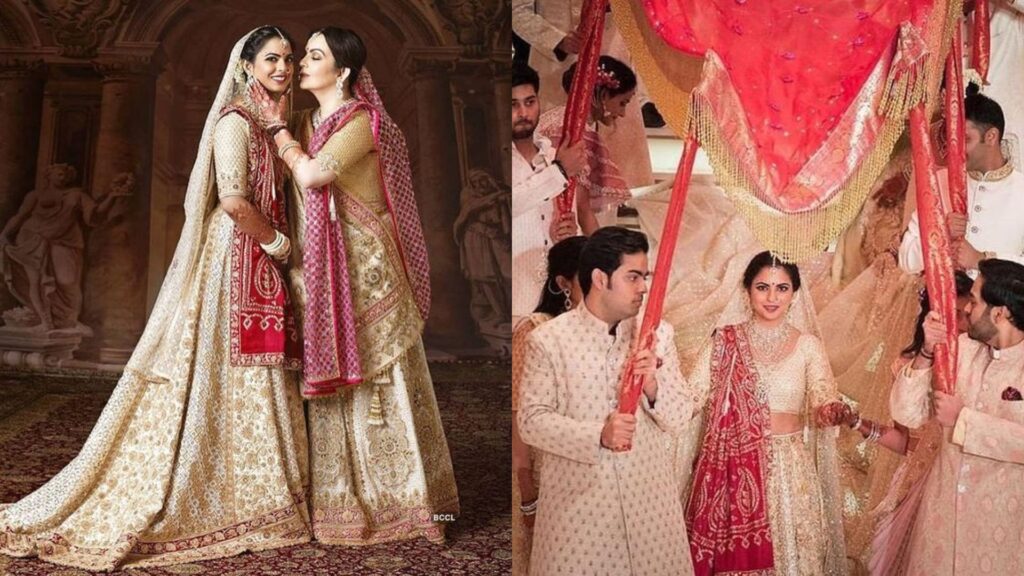
Isha Ambani on Her Wedding Day
Radhika Merchant’s Panetar Inspired Lehenga
- For her wedding to Anant Ambani, Radhika Merchant wore a custom Panetar-inspired lehenga designed by Abu Jani and Sandeep Khosla.
- The lehenga featured the traditional red and white color scheme, with intricate Zardozi embroidery, floral motifs, and embellishments like stones, sequins, and Tamba tikkis.
- The ensemble included a trailing ghagra (skirt) with a second detachable trail, a 5-meter head veil, a blouse, and a tissue shoulder dupatta that added dramatic flair.
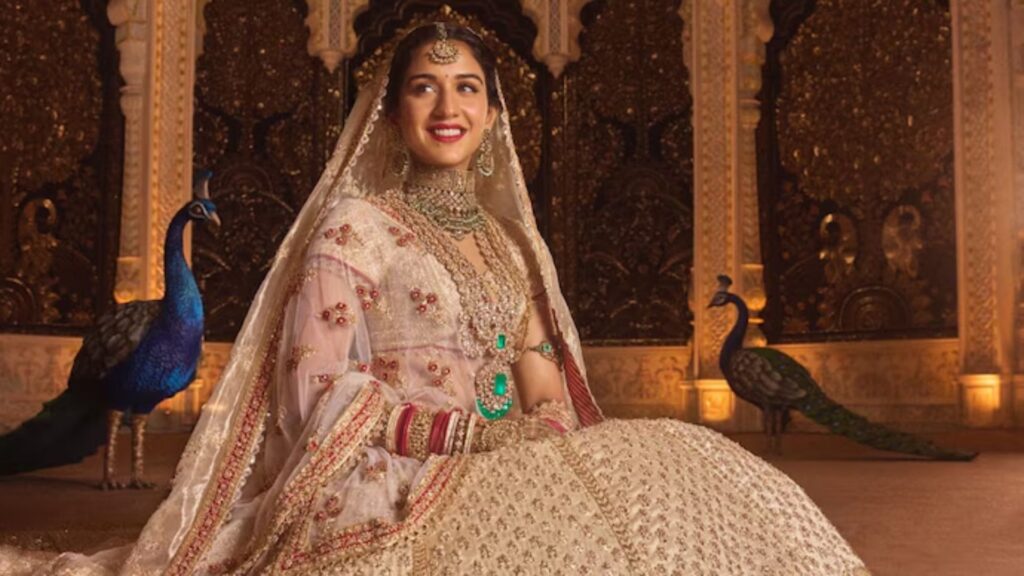
Radhika on Her Wedding Day
In summary, the Panetar holds immense cultural value in Gujarati weddings, representing purity, love, and the transition to married life. The Ambani family’s embrace of this tradition at their recent high-profile celebrations underscores its enduring importance in Gujarati culture.

